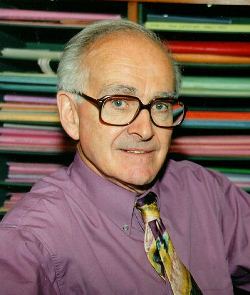 Robert FAURISSON,
September 21, 2008
Robert FAURISSON,
September 21, 2008A remark about Christopher Vick’s letter (Smith’s
Report, September 2008, p. 2)
"I do not deny; I affirm..."
Personally I consider that for a revisionist to adopt the word “deny” (or “denial”,
or “denier”) is to fall into the opposing side’s
game and adopt their language; it amounts to
giving them a stick with which to beat us.
Whenever someone rebukes me for denying “the Holocaust” I
respond: “I don’t deny anything in that regard
but, on the contrary, I affirm. I
affirm, at the end of my research and observations, that ‘the
Holocaust’ did not exist; for me, ‘the Holocaust’ is a
historical lie”.
If
need be, I sometimes add: “I am neither a
denier, nor a ‘negationist’. I consider that it’s you who deny;
for me, you deny the obvious." Galileo denied
nothing; it was his opponents who denied; they denied the
obvious. He, at the end of his research and observations, stated
that such or such conclusion was inexact and that another
conclusion was exact.
He
was a revisionist and a positive or pragmatic mind.
The
revisionists are positive or pragmatic people, and to such an
extent that at times their opponents call them positivists,
since, for a positivist, the verification of cognizance through
experience is the sole criterion of truth.
Sometimes, to make fun of my opponents, I use irony (a weapon
that can be dangerous, for irony is not always understood) and
tell them: "If you call me a 'negationist', a
word that’s a barbarism, allow me in turn to coin other
barbarisms and call you 'affirmationists', 'affirma-Zionists' or
'nega-Zionists'."
In
Goethe’s Faust, Mephistopheles is “the spirit that
ever denies” (der Geist der stets verneint)
and the public doesn’t much like those who deny things. If you
don’t care to be more or less likened to the devil in the public
mind, avoid saying that you deny.
Source:
Smith's
Report, 2008
Robert FAURISSON, September 21, 2008


































